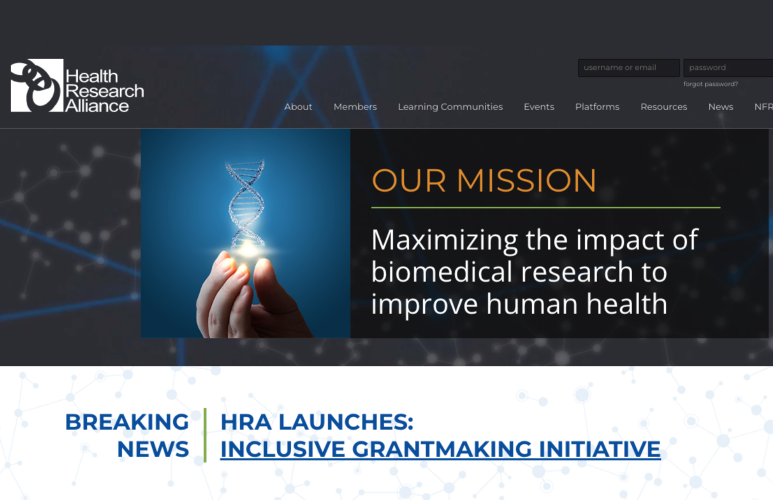A consortium of more than 100 nonprofit healthcare funders that collectively award more than $1 billion annually has launched a grantmaking initiative to increase diversity, equity and inclusion (DEI) in the biomedical workforce.
The first step is admitting you have a problem so this is an acknowledgment and a call to action,” said Maryrose Franko, Ph.D., executive director of the Health Research Alliance (HRA) in Research Triangle Park, N.C.
The initiative specifically recognizes that Blacks, Latinos, all people of color, and members of the LGBTQ community are under-represented in grant programs and as awardees who receive grants from HRA members. The initiative would involve implicit bias training and diversity training for reviewers of grant applications, if necessary, and collection of additional demographics from grant-seekers.
“We want to answer the question of whether we are choosing equitably and do we have strategies in place so that they stay in the research workforce,” Franko said.
Some of the nation’s brand name health and research nonprofits are part of the initiative, among them the American Cancer Society, the Alzheimer’s Association, the American Association for Cancer Research, The American Diabetes Association, the American Heart Association, Autism Speaks, JDRF, and the Pew Charitable Trusts.
The announcement of the initiative comes on the heels of a commentary co-authored by Franko and six others for the journal Nature Medicine. The plan is to increase the diversity of the biomedical research workforce and encourage more inclusive and equitable environments for researchers to “accelerate scientific discovery and decrease health disparities.”
A working sub-group of the HRA, the DEI Community, last year conducted a survey of HRA member organizations to better understand DEI strategies used by funders and what support funders needed. The survey led to recommendations in three areas: demographic data collection and use; increasing the diversity of the applicant and awardee pools; and, reducing bias in peer review.
For example, in a survey by HRA last year, just 37% of respondents in a small sample said that their protocol identified LGBTQ groups as underrepresented minorities compared to Black and Hispanics both at 74.1%. When looking at the demographic data and putting it to use, the authors suggested five steps:
Step 1: Identify the problem you are trying to solve/ goal you are seeking to achieve.
Step 2: Identify aspects of demographic data that are relevant for your goals.
Step 3: Use categories and resources most commonly used by others to make it easier to begin/refine your efforts to collect data.
Step 4: Develop a procedure for how information will be used consistently, fairly, and effectively.
Step 5: Develop a data use policy and have it reviewed by legal council. Consider posting the policy for transparency sake.
Additional biomedical research funders are being sought for the consortium to join in developing inclusive grantmaking strategies that can be used consistently across all funding organizations. The goal, according to Franco and her Nature Medicine co-authors, is to fight implicit bias against applicants from under-represented groups that result from subjective notions of excellence.
“Inclusive grantmaking is a priority of the HRA,” said Sindy Escobar Alvarez, chairperson of HRA’s board of directors and medical research program director at the Doris Duke Charitable Foundation in New York City. “This initiative will provide a structure for member organizations to collaborate, learn and disseminate lessons, which has the potential to impact thousands of researchers in biomedicine and, more broadly, to improve peer review.”
The initiative will involve crafting a sensitive approach to how demographic questions are posed since some people may not want to answer or choose self-identification, Franco said.
The American Heart Association, with support from Pfizer and Gates Ventures, recently awarded $20 million in grants to address the lack of DEI in clinical trials for medical research. Teams of research scientists from 11 universities and health care systems will lead a research project to study obstacles to people of color and diverse race and ethnic backgrounds from being included in clinical research trials and determine how solutions can be found across the research community.
The Nature Medicine commentary can be viewed here: https://bit.ly/3GHZ3X7










